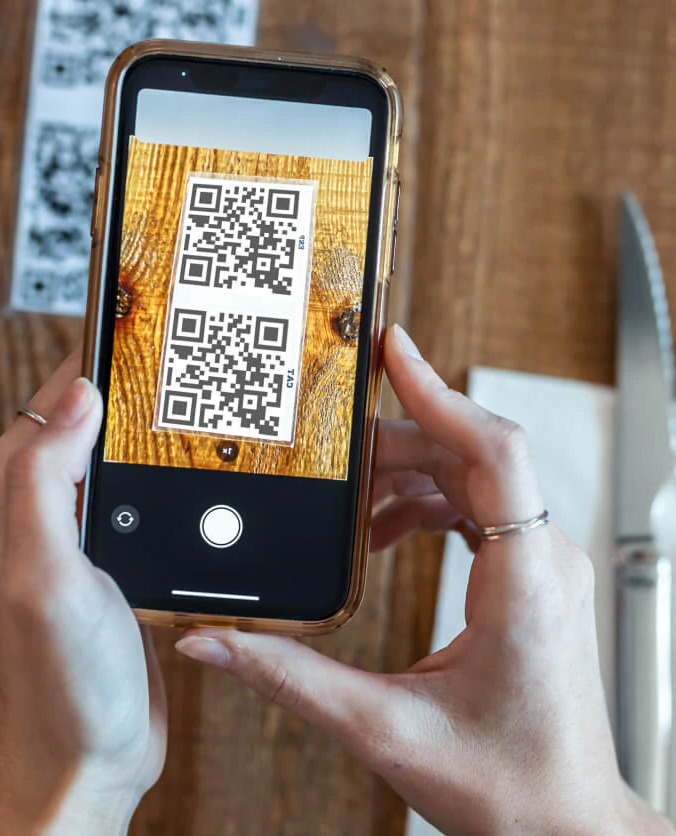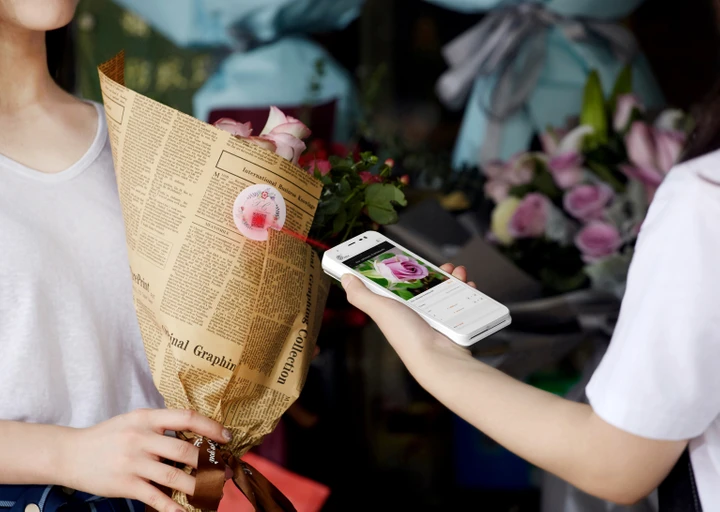Table Ordering System (QR Code Ordering)
Unleash the power of QR Code ordering! Limit in-person contact and elevate the dining experience with our tableside system


QR Code Ordering A Game-Changer for Your Business.
Say goodbye to long lines and wait times. Our QR code ordering system empowers guests to order and pay directly from their tables using their mobile devices.
Boost Sales and Enhance Customer Experience.
With our tableside ordering system, guests can easily browse menu items and item descriptions on their own mobile devices, reducing paper costs and improving the dining experience.


Multiple Payment Options Seamless and Secure.
Our system supports various payment methods, including Google or Apple Pay and other contactless payments. This versatility ensures a smooth checkout process for every customer every time.
Reduce Costs Increase Efficiency.
Are high labor costs and operational inefficiencies hurting your bottom line? With our mobile point of sale, you can streamline service, minimize errors, and boost your bottom line.

Frequently Asked Questions (FAQ)
Table side ordering is a process where customers place their orders directly from their dining table at a restaurant. Traditionally, this would involve a waiter or waitress taking the order, but modern tableside ordering often refers to digital ordering systems where customers use a mobile device to make their selections.
Tableside ordering systems are a type of service often facilitated by digital technology, where customers at a restaurant can view the menu, make their selections, and place their order directly from a device at their table. The orders are then sent directly to the kitchen staff. This can be done through various means including mobile apps, tablets provided by the restaurant, or via QR codes that direct customers to an online menu.
A QR code ordering system is a digital solution where customers scan a QR code at their table using their smartphone. The QR code ordering method directs them to an online menu where they can make their selections and place their order. The order is then sent directly to the restaurant’s point-of-sale system or kitchen staff.
Tableside payment refers to the process by which customers at a restaurant can pay their bill right at their table, typically using a mobile device or a portable point-of-sale (POS) system. The payment may be facilitated by a server using a handheld device, or through a customer’s own device, such as by scanning a QR code that leads to a payment portal. Tableside payment systems are designed to make the payment process faster, more efficient, and more convenient for both customers and staff.tive freedom.
The term “tableside” in a restaurant industry refers to any service that is performed or delivered at the customer’s table, as opposed to away from the dining area such as in the kitchen or at a counter. This can include various services such as order taking, food serving, tableside cooking or preparation, and payment. The goal of tableside service is to enhance the dining experience by providing a high level of attentiveness and engagement.
- Improved Efficiency: Orders go directly to the kitchen reducing the risk of miscommunication or errors. It also speeds up the service as servers do not need to spend time taking orders.
- Increased Sales: Customers can place orders at their own pace, which may lead to additional items being added. Additionally, some systems can suggest upsells or specials.
- Enhanced Customer Experience: Customers appreciate the convenience and control of placing their own orders.
- Reduced Labor Costs: Servers can focus more on delivering excellent customer service rather than spending time taking orders.



